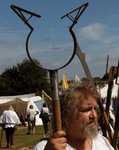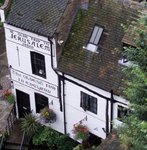Soundbreaker Welch?
Tech Sergeant
In Colorado, the closest Fair to me is the Scottish Festival, in Estes Park. This year it goes from September 6 - 9.
It's go a lot of Scotty stuff like bagpipes and jigging, but it also has events like jousting, and last year my sister said they had a catapult. The jousting was good, first time I ever saw it.
It's go a lot of Scotty stuff like bagpipes and jigging, but it also has events like jousting, and last year my sister said they had a catapult. The jousting was good, first time I ever saw it.


